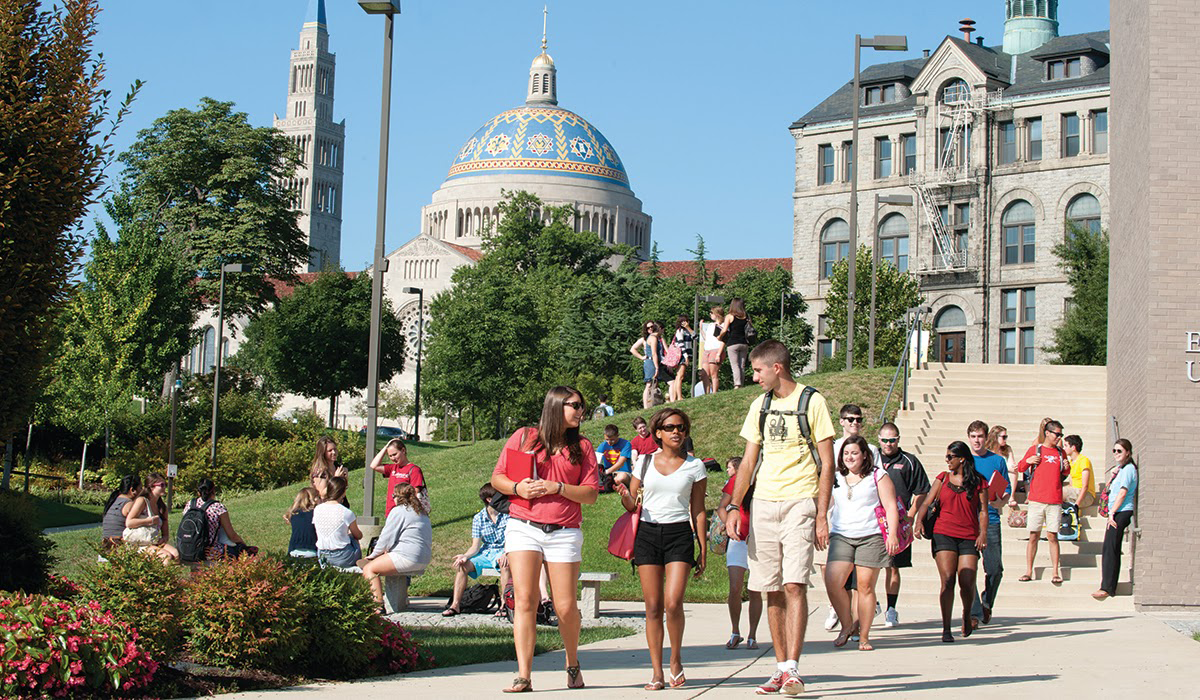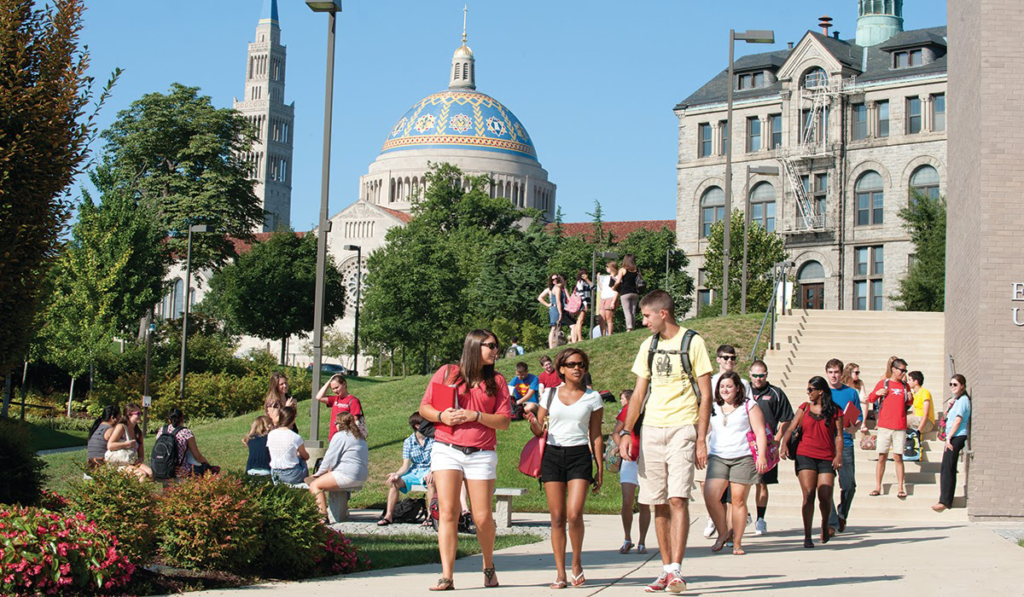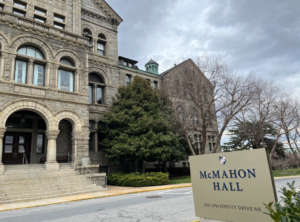The Financial Impact of COVID-19 on Catholic University and Its Students


Photo Courtesy of Catholic University
By Jessica Fetrow
Since the transition to an online spring semester and closure of residence halls due to the coronavirus pandemic, the Catholic University has suffered a major financial crisis. The unprecedented financial crisis was announced by the university just after the start of the fiscal year on May 1.
In a statement from President John Garvey on May 19, it was noted that Catholic University lost nearly $5 million during the spring semester alone. This loss is attributed primarily to the refunds provided for students’ housing and dining services, as well as the inability to host conferences and events on campus. Further losses were accrued from refunds on parking passes.
In addition to a substantial financial deficit in the spring semester, the university is expecting to lose a significant amount of money during the summer, as well. Although summer enrollment is higher this year than it has been in previous years, with the total university summer enrollment increased by about 6% and the total number of enrolled credit hours increased by about 3%, the university is expected to lose a significant amount of expected income. The expected deficit is due to the university’s inability to host conferences or house students participating in Washington, D.C. internships this summer.
According to the statement, several university officials are working to rework the budget and financial plans for the university community going forward amid these challenges.
“In the past few weeks, our Vice President for Finance & Treasurer, Rob Specter, has been consulting with me, our Leadership Group, trustees, the Academic Senate, deans, University Budget Committee, Administrative Council, Committee on Faculty Economic Welfare (CoFEW), and the Benefits Advisory Committee, exploring our options for responding as a community to the continuing financial impact of the COVID-19 crisis,” Garvey said. “It is critically important for all of us to be aware of the challenges we face and work together in order to address these challenges, support all members of our community, and ensure a solid financial future for Catholic University.”
To combat the budget strain, the university announced some new modifications for the upcoming academic and fiscal year in an effort to “provide more than $12 million in cost savings.” These modifications include a 20% salary reduction for Garvey, 10% salary reduction for vice presidents, a reduction of “centrally-funded capital expenditures” with a redirection of funds towards the university operating budget, an indefinite hold on all departmentally funded capital projects that do not include classroom technology improvements or social distancing projects, and reduction of operating budgets by 3%. There has also been a hold of new staff hiring for the university.
The construction of the new Conway School of Nursing building will continue as scheduled, as the school “has particular salience in these times as the producer of the next generation of health care professionals.”
Catholic University also utilized the Coronavirus Aid, Relief, and Economic Security Act, also known as the CARES Act, to assist students with the financial impact of the coronavirus. According to the university’s CARES Act report, the university received $1,187,286 from the Department of Education under the CARES Act due to its Certification and Agreement [for] Emergency Financial Aid Grants to Student; of the total amount allocated to the university, $770,040 was distributed to students. It is estimated that 2,480 students were eligible for the grants. According to Money, an estimated 500 students at Catholic University submitted an application for the grant within the first 48 hours of its availability.
Additionally, the Dean of Students, Jonathan Sawyer, sent an email on April 15, saying that “Catholic University will use the [CARES Act] funding to provide one-time emergency grants of between $500 and $2,000.” Those who qualified for the grant received through the student accounts on Cardinal Station as “CARES Act Grant.”
“These grants are intended to lessen financial challenges resulting from the current health crisis including travel assistance, emergency medical expenses, expenses related to student virtual learning, overdue utility bills, housing assistance, food insecurity, and more,” Sawyer said.
The university has stated that it will continue to assess its financial position over the course of the summer and during the beginning of the fall semester once more information about enrollment and the impact of the virus is available.
“I appreciate the resilience and team spirit you have shown so far, and I seek your constructive ideas and recommendations as we work through these challenges together,” Garvey said.







